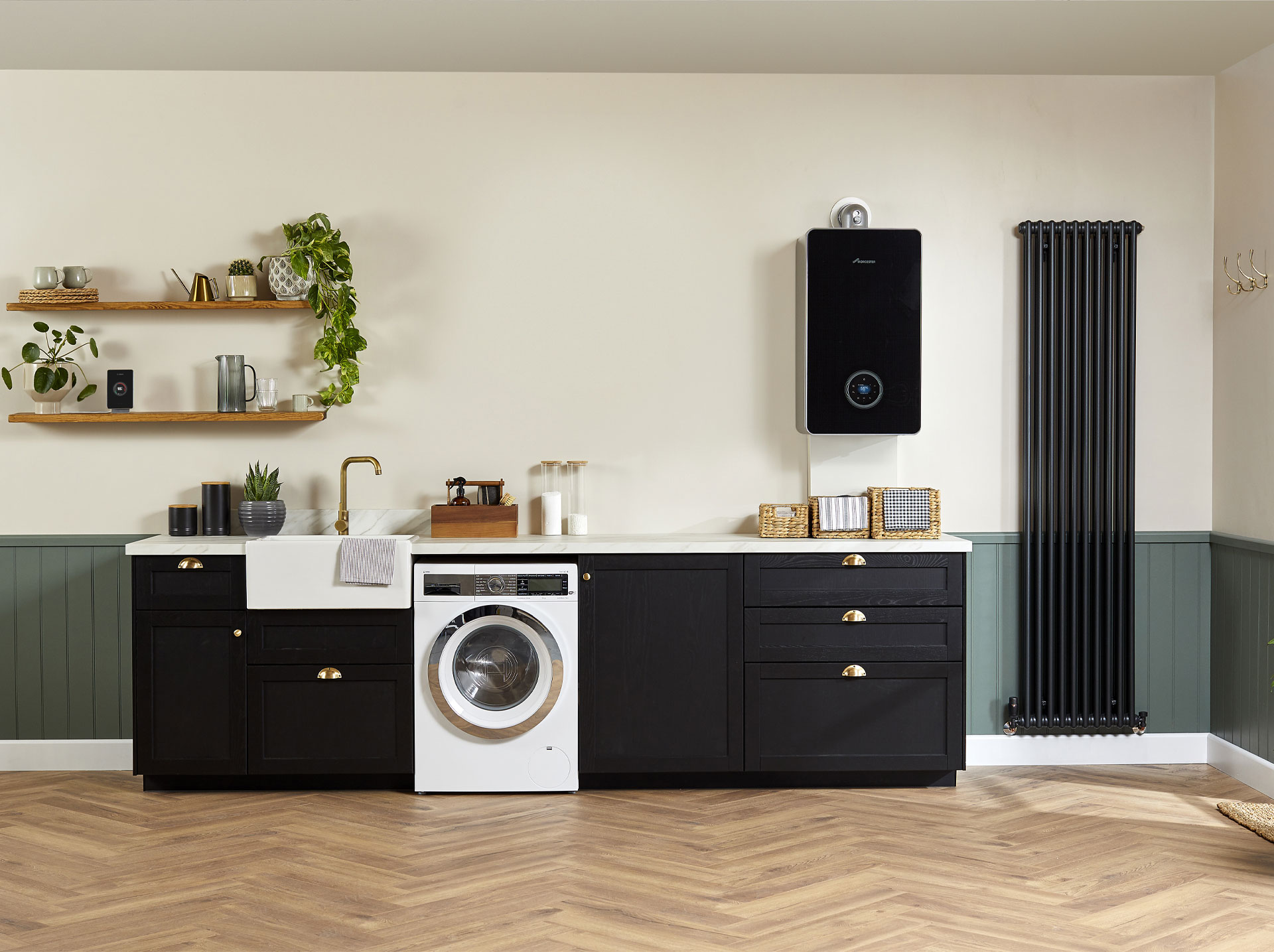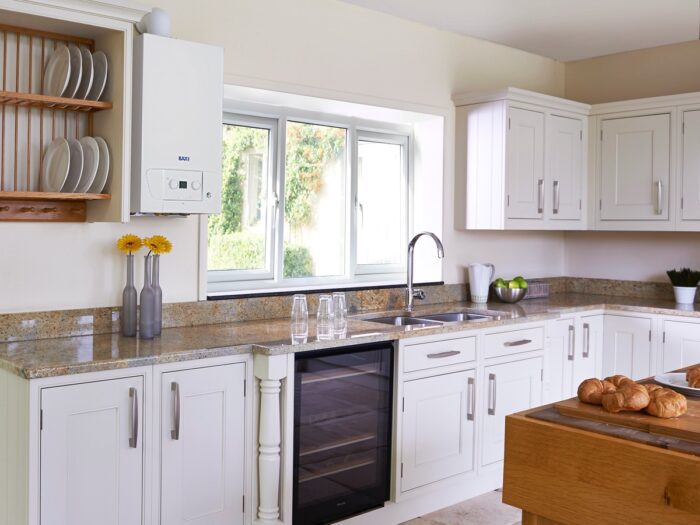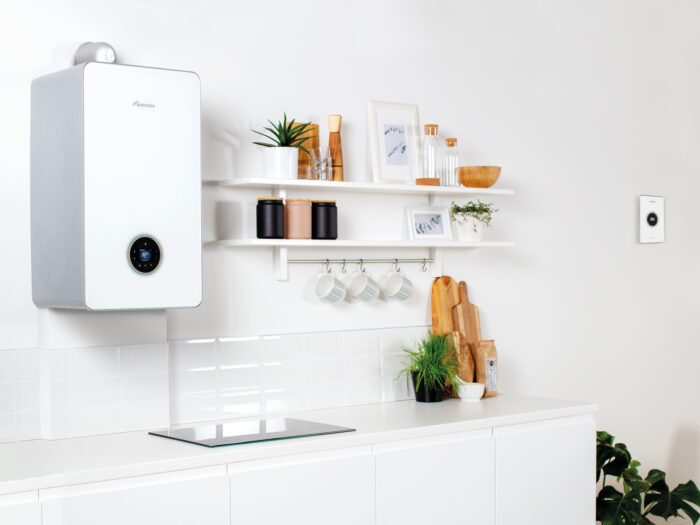
5 tell-tale signs that your boiler needs replacing
It can cost thousands, so there’s really no good time to find out you need to buy a new boiler. But by looking out for any early signs that your boiler needs replacing, you may be able to fix them with a service or repair. And if nothing can be done, you can start budgeting accordingly.
A recent survey conducted by property experts Martin & Co found that 51% of UK homeowners are unaware of the signs that their boiler needs replacing. A malfunctioning boiler can cost a lot more to run, ramping up your heating bills. And even if there’s nothing outwardly wrong, if it’s more than 15-years old, it could be far more inefficient that a new model.
Thankfully, we have two heating experts on hand to help you identify the signs that your boiler needs replacing – Peter Clayton at Trade Plumbing and Matthew Jenkins from MyJobQuote. Between them, they can shed light on what to look out for.
1. Your boiler’s gauge indicates low pressure
If the boiler pressure is showing as low compared to the manufacturer’s guidelines, it could quickly cause issues by causing the boiler to overheat. The extra heat will impact the rubber seals, potentially causing them to fail and leading to leaks.

2. You spot a leak
Water near your boiler is never a good sign. “If you notice puddles of moisture appearing around your boiler, then you’re looking at a water leak and must call a heating engineer immediately,” says Matthew Jenkins.
“Not only could this cause serious damage to your property (such as mould), your bills could come in as noticeably higher – think of the wasted water!”
Matthew says that even the slightest drip should be investigated.
“To determine the issue, engineers will isolate which part of the boiler the water is leaking from,” he says. “The repair may be as simple as a loose pipe connection, but it could be that some parts have become faulty and started to disintegrate.”
3. Your radiators aren’t heating up properly
“If your radiators stay lukewarm or take an age to get up to temperature, it’s a sign that your central heating is not up to par,” says Matthew. His first step would be to bleed the radiators to get rid of any trapped air. If that doesn’t solve the issue, you could be looking at a boiler repair or replacement.

“Modern radiators reach their maximum temperature quickly so if you’ve bled your radiators and the problem still persists, it could be a sign that your boiler is in need of repair,” Matthew explains.
“It could be that your central heating system has filled with sludge, rust and dirty water over a long period of time. Not removing this not only affects your radiators but could cause damage to your boiler.”
4. It’s making strange noises
Your boiler won’t run silently – a little background sound is to be expected. However, “unusual noises, such as banging, gurgling or whistling, are indicators of potential issues,” says Peter.
Matthew adds, “Common explanations are that your boiler has unusual water pressure or faulty parts within the boiler which is causing it to knock. If your boiler is whistling like a hot kettle, this can indicate a mineral build up that is blocking heat exchange.”
5. It gives off a smell
Any sort of putrid odour coming from your boiler should be dealt with immediately. In the worst-case scenario, it could be the sign of a life-threatening gas leak.
“There are numerous smells which could indicate different grades of repair,” says Matthew.
“Burnt metal or plastic smells can be produced by overheating. This may indicate that there’s an issue with the furnace burner or air filter. On the other hand, foul sulphuric smells point to a gas leak. Turn off the system, open doors and windows, and evacuate the building before calling an engineer.”
What should I do if my boiler shows signs of breaking?
If you see any sign that your boiler needs replacing, your first move should be to a ‘Gas Safe’-registered engineer. They can assess the issue and decide if it’s fixable or terminal.
According to Check-a-Trade, you can expect to pay on average around £100 for a boiler service. Boiler repair firm Fair Fix confirms that its costs range from £60 to £150, depending on the level of service required.
How much does a replacement boiler cost?
The cost of a new boiler can vary wildly depending on your location, the type of boiler required and whether you are doing a like-for-like replacement.

“Biomass-fuelled boilers tend to be the most expensive costing upwards of £5,000, while the price of combi boilers can be as low as £500. On average, homeowners tend to pay between £500 and £3,000,” says Peter, who warns that this figure may not include installation costs.
“The price of installation varies depending on the type of boiler,” he adds.
“An installer may charge anywhere from £500 to £2,500, which can drastically raise the cost of a new boiler.”




